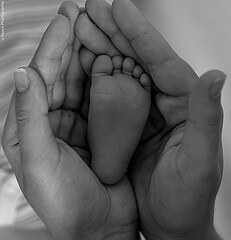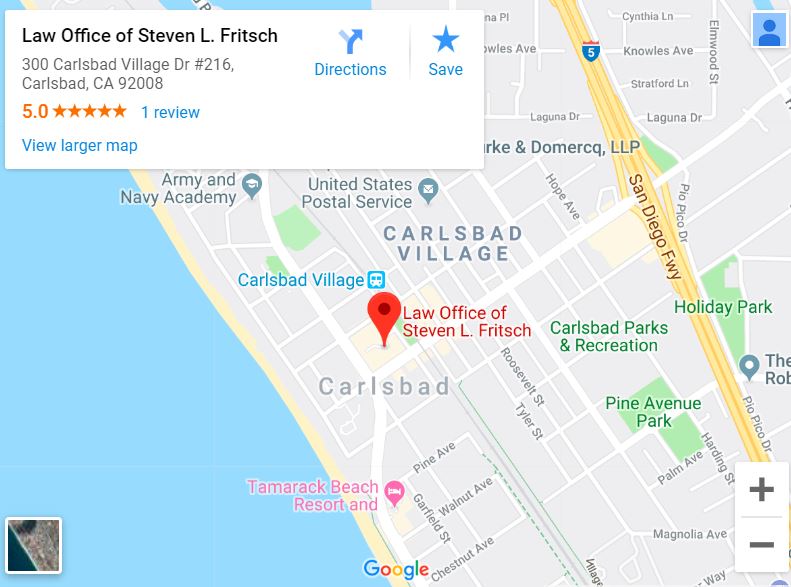 In California, child support is calculated according to guidelines. A parent’s obligation is determined by a mathematical formula called a “guideline.” In calculating child support the court uses both parties’ incomes, how much time each party has with the children (“timeshare”), tax filing status and allowable deductions.
In California, child support is calculated according to guidelines. A parent’s obligation is determined by a mathematical formula called a “guideline.” In calculating child support the court uses both parties’ incomes, how much time each party has with the children (“timeshare”), tax filing status and allowable deductions.
Calculating Child Support in California
Determining a parent’s income is essential to calculating child support. This determination can be complicated and many times is a highly contested area between the parties. The preparation of financial documents and presentation of the parents’ income to the court is crucial and may have a great impact on the amount of support ordered.
W-2 Employees vs. Self-Employed Workers
For W-2 employees, the inclusion of overtime and bonuses as income available for the support calculation is often an area of contention. Self-employment creates additional complex issues that play an important role in determining the income of the self-employed person. Because a self-employed person deducts expenses against their gross income to obtain the lowest possible net income, they tend to inflate their business expenses. It is therefore necessary to understand what are legitimate expenses and what expenses should be added back to obtain the actual income of the self-employed. The Law Office of Steven L. Fritsch has the knowledge and experience to assist you in determining the incomes of the parties and calculating child support.
The Department of Child Support Services (DCSS) is another avenue other than the Family Court that assists in determining, enforcing and collecting support. DCSS has remedies that the Family Court does not have to collect support.
How to Modify Child Support Payments in California
Child support in California is covered by Family Code 4053 and covers the parent’s obligation to support their child in detail. This obligation is mutual and shared by both parties, but could vary based on ability, income and the time actually spent with the child. All decisions need to be made in the best interest of the child; any minor children should have the same standard of living as both parents. In some cases, child support is needed to improve the standard of living of the parent who has physical custody of the child.
By improving that parent’s living space and standard, the child has an improved standard of living as well. In most cases the parent with primary custody is assumed to already be directing a significant portion of resources to supporting that child. In some cases, the living situation, life circumstances or income of one or both parties can change. When this happens, an existing child support agreement may need to be modified to reflect the change in circumstances.
What Happens When You Need to Change the Support Agreement?
When you request a modification to the child support agreement in the state of California, you’ll receive information from the Child Support Services Department. Both parents will receive a request from the CSSD requesting financial status and similar information. This information is used to determine if a modification is truly appropriate and required.
Your family law attorney can help you determine if your circumstances or your former spouse’s circumstances warrant a change to the agreement and assist you with the process. During the process, the amount of child support could be increased, decreased or left the same, depending on the court’s findings.
What Happens When You Make a Request for Child Support Modification in California?
Once a request is made and approved, the new orders will begin on the date your attorney or your former spouse’s attorney filed for the modification. Usually it does not matter who filed or whether the order was requesting an increase or a decrease. There are a few exceptions, including:
- Unemployment: The modification request can be made to match the date of unemployment tin some cases.
- Change in income due to military service: Changes here are retroactive to the date of the change, based on federal law (42 U.S.C. Sec. 666(a)(9).
- Reimbursement: The court could possibly order reimbursement of any retroactive amounts.
Change of Circumstances and Child Support in California
A change in child support request needs to include a reason, generally a change in circumstances since the previous order was made. If the original agreement was below the guideline amount, it can be changed without a change in other circumstances. Some typical circumstance changes include:
- Changes in parenting time: Child custody changes and the amount of time the child spends with each parent could be cause for a modification request.
- Changes in income: One parent gets a raise, gets a pay cut or loses a job, which may lead to a modification request.
- Another child: One parent has an additional child from another relationship
- The child’s needs change: Medical or healthcare changes or the discovery of a special need or disability could trigger a modification request.
The changes need to be significant enough to warrant a request. Changes that are minor or simply too small to have an impact will generally not result in a modification approval. Your attorney can help you determine which changes are significant enough to warrant a request.
Don’t Wait to Request a Change
If you wait to file a change request when the life circumstances have changed enough to warrant it, you could regret it. If you are the paying parent and have lost your job, the original order could no longer be feasible; you could even fall behind. If you are the parent who is receiving the support, the sooner you have the funds you need to improve your child’s quality of life, the better it will be for you both. Waiting only prolongs things and makes the process more stressful.
Steven L. Fritsch, Esq. has years of experience litigating in DCSS and has represented numerous parents whose child support is being enforced in DCSS. The Law Office of Steven L. Fritsch will aggressively represent your interests in any DCSS matter. Contact us today for a free consultation.
